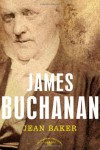Seriously, Read a Book!
Thoughts on books, often interpreted through the high-brow prism of cartoon (read: Archer) references. Wait! I had something for this...
Currently reading
Southern Storm: Sherman's March to the Sea

An Unsolicited Personal Preamble
I am a total noob when it comes to military tactics, maneuvers and whatnot in the American Civil War (heretofore referred to as "the Civil War," but it's not like the U.S. holds the exclusive rights to combat among countrymen). I ended up reading this Noah Andre Trudeau work out of a combination of my burgeoning interest in historical narratives of conflict and warfare, references to Sherman in a number of my presidential reads and (the biggest one, if I'm being truthful) as a result of engaging in a bit of "library roulette."*
The March Oversimplified
So there's this guy leading a bunch of other guys around the South...too vague? Let me try again. Open curtain on William Tecumseh Sherman and his Union troops (often referred to as federal troops/army in journals quoted by Trudeau) in Atlanta, Georgia. Obviously they didn't just appear there, but that's a different story for a different time. The gist, however, is that when Ulysses S. Grant had to travel eastward to take command of the overall Union Army (March 1864), he tapped Sherman to take over for him in the Western Theater as head of the Mississippi Division.
There's no denying that Sherman didn't always have his head screwed on tight, and was thought to be insane by some. He blamed himself for the death of his favorite son, Willie, and made no secret of his thoughts of suicide in letters home.
For now, back to an Atlanta occupied by Union soldiers and where Sherman ordered the evacuation of civilians from the city, and also the destruction of infrastructure (e.g. the railroad depot, below, was blown up upon Sherman's departure), marking the beginning of what would come to be known as Sherman's scorched earth policies.
Sherman and co. began their journey seaward sans supplies- breaking off from the wagon chain which had carried their provisions, but also slowed things down. This left the troops to forage from the land and supplies found in the households as they marched through Georgia. The troops became known as bummers and their activity and directives are well depicted by Trudeau through journals and letters from Georgian civilians and Union troops (and leadership) alike.

The destruction wrought under Sherman's command was not pretty, though it was tactical. Though Sherman was by no means an advocate for racial equality (and was contemptuous of the burden imposed by the "trail of negroes" that followed in the wake of the federal troops), the army made ready use of the knowledge and strength capital offered by slaves (the picture above illustrates the scenario as depicted in many an excerpt from civilian diaries).
The "battles" between Union and Confederate troops en route to Savannah were minimal, small in scale and with fewer lives lost than in earlier battles of the war to which Sherman had been party (e.g. Shiloh). However, Sherman's march was psychologically and logistically devastating to the South. By taking from crops and civilians and destroying the railroad (in what became known as the Sherman necktie - below), the Confederacy was cut off from the resources necessary for its continuation.
On War
I haven't actually read Clausewitz (yet), but he seems to come up a lot in discussions of Sherman's legacy. From a strictly utilitarian perspective, it's impossible to know whether Sherman's march saved (by preventing theoretical battles through the destruction of property) or lost lives in the balance of things by fighting infrastructure rather than infantry. Savannah made for a lovely symbolic Christmas gift to President Lincoln, but Sherman's march undoubtedly sowed some serious resentment among Southerners.
Though not exactly a treatise on the Laws of War, I remember a general in Max Brooks' World War Z mentioning that the traditional take on warfare (of the non-zombie kind) was that soldiers simply needed to be "bred, fed and led," a trio of factors crippled for the Confederacy through Sherman's Union leadership.
Conclusions?
Trudeau lets you draw your own conclusions, and mine are still, at most, rough sketches. Trudeau references Sherman's own "rules of war" throughout the book (guided in part by Sherman's sense of collective responsibility), and draws language and information from a plethora of vantage points. I closed this book wanting to learn more which (for my money) is actually a good thing.
_____________________________________________
* A fun little game wherein I start with a pick from the library's category page (which, as far as I can tell, just includes three or four random books from each category) and I give myself three clicks (max) of "you might also enjoy" pages before selecting what to read. I realize it's not exactly The Deer Hunter, but a girl's gotta spice up her life sometimes!
 7
7
 2
2













